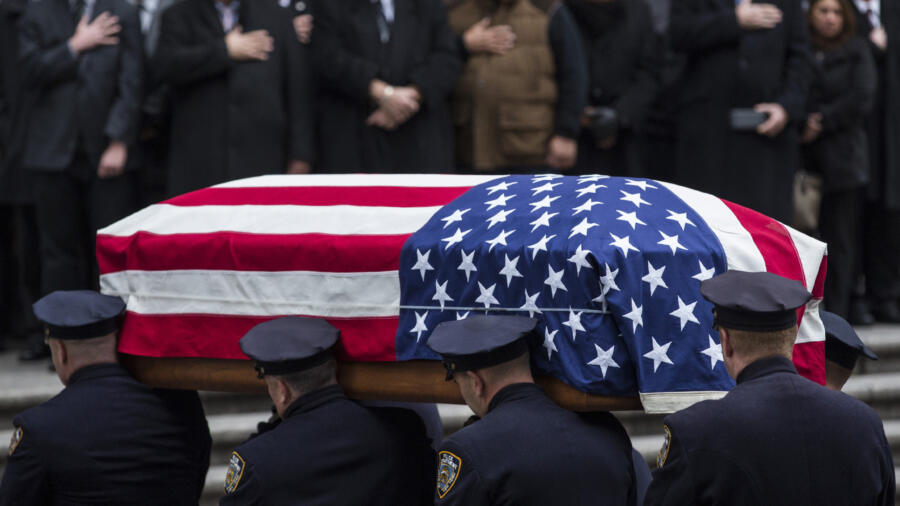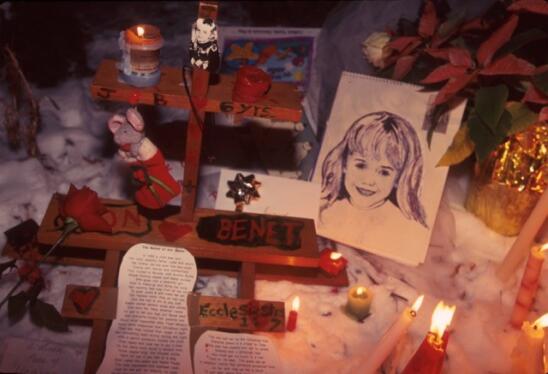The Cold Case Files episode “Officer Down” examines what is possibly the oldest cold case in the United States involving a law enforcement officer. Lieutenant Ray R. “Joe” Clark, a Deputy Sheriff in Ohio’s Washington County Sheriff’s Office, was killed on Saturday, February 7, 1981. It took over 30 years for the case to be solved.
A&E True Crime spoke to Travis Yates, editor in chief of LawOfficer.com (and a police officer in Tulsa, OK), about the toll an officer’s death takes on the community, the families and fellow officers.
What happens after the killing of a law enforcement officer?
When it comes to a police officer’s murder, everything is the same, except it’s worse. Every homicide is difficult to investigate: you have to be concerned about doing everything correctly so there’s a solid case and, hopefully, a conviction. You don’t want to make any mistakes and that takes a lot of meticulous work. On the other hand, with homicide you worry about families, because they’re going through a lot of grief and pain. There’s a balance between interacting with those families and trying to get the information you need to solve the crime. But with an officer, you have to take all the same steps, all the same precautions, but now you have to put personal feelings and emotions into it. Often, you’re literally investigating the death of a friend or co-worker. It takes a huge emotional toll.
It must be a shock when a fellow officer is killed.
Right after a law enforcement officer’s death, there’s so much emotion; so much adrenaline, so much drive. You’re not sleeping and then you bury the officer—and that’s a huge event in and of itself, with full honors—then all of a sudden that’s over with and you’re just left there with the thoughts and emotions. The newspapers go away. The reporters go away. And everyone goes on living their life. The family and the police department continue to live with that pain forever. For the most part you don’t ever get over it. The last police officer in my department that we buried was 20 years ago, I was there when it occurred, and it’s like it happened yesterday. It leaves a mark on you that never goes away. My wife’s father was killed in the line of duty when she was a little girl. That was 39 years ago. I’ve seen firsthand that the pain never goes away.
Is it rare that a law officer’s death would be unsolved for so long?
You don’t see many cold case deaths with law enforcement because often there’s a connection between that officer and that suspect, whether it’s a traffic stop or an arrest or a contact. Very rarely is a law enforcement officer killed in the line of duty where we can’t solve quickly. I would assume there are investigators in that department [Clark’s department] that never rested and never slept well for the last three decades because they knew that case was unsolved. I doubt for 30 years that it ever left the minds of the officers that were tasked with investigating it.
What would you want the general public to know about the killing of a fellow officer?
We are seeing deaths of police officers on a weekly basis here in America. There were 66 felonious deaths of police officers last year.
What are some of the legal efforts of law enforcement groups around the killing of police officers?
In many states they’ve passed what they call the Blue Lives Matter Law. It enhances the punishment for those who kill police officers. I think that’s a good thing. I think that it should be similar to our enhancement of hate crime laws. Because killing a police officer is nothing more than a hate crime. It’s targeting that person because of who they are and what they do. While, obviously, wearing a uniform is not your race, there’s a hate component because officers are being targeted because of who they are.
(Image: Andrew Burton via Getty Images)


